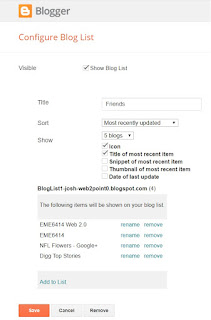Terms, terms, terms
As this week draws to a close, I must admit that I still have no firm handle on my readings and topics of this week. Between 'Copyright' and 'Creative Commons'; and 'Folksonomy' and 'Ontology', I knew I was in for a tough time getting through the content. And unlike a happy movie, I cannot say that I came out on top.
Intellectual Property. With the continuous development of the web and social media, much of the legislation has not caught up. In the past, clear distinctions could be made of what contributed to copyright infringements and what did not, especially in the education field. Even when providing attribution was necessary, it was clear how authors, titles and publication houses should be credited. However, with online content, it has become more difficult. Is that video you shared yours? Did you credit the person? Do you even have to? With the notion of virality, it would seem that crediting seems like a lost cause. And if defining laws was difficult, trying to police it would be more so. However, my key takeaway is that as copyright laws, and its associated creative commons licence, continue to catch-up, we should do our part in ensuring intellectual property. Arguably, if we do not care for the ownership of intellectual creations, the same should be said about our physical properties. Thus, schools and institutions should continue to educate students on giving proper attribution.
Content Curation. In line with personal learning networks, I discovered content curation. When developing one's learning network, one major aspect is curating the content that you have discovered and are sharing. This is especially true, if like many of us, we do not create our own content. Instead, we crowdsource from multiple sites and/or persons. It is important that it does not just involve aggregation of content, but more importantly, includes "distillation" and "elevation". To me, this simply means making sense of the content, ensuring that the information is reliable, instead of sharing it randomly.
Definitions. Just in case you are still wondering what the definition of the two words mean, a quick google search got me this:
Intellectual Property. With the continuous development of the web and social media, much of the legislation has not caught up. In the past, clear distinctions could be made of what contributed to copyright infringements and what did not, especially in the education field. Even when providing attribution was necessary, it was clear how authors, titles and publication houses should be credited. However, with online content, it has become more difficult. Is that video you shared yours? Did you credit the person? Do you even have to? With the notion of virality, it would seem that crediting seems like a lost cause. And if defining laws was difficult, trying to police it would be more so. However, my key takeaway is that as copyright laws, and its associated creative commons licence, continue to catch-up, we should do our part in ensuring intellectual property. Arguably, if we do not care for the ownership of intellectual creations, the same should be said about our physical properties. Thus, schools and institutions should continue to educate students on giving proper attribution.
Content Curation. In line with personal learning networks, I discovered content curation. When developing one's learning network, one major aspect is curating the content that you have discovered and are sharing. This is especially true, if like many of us, we do not create our own content. Instead, we crowdsource from multiple sites and/or persons. It is important that it does not just involve aggregation of content, but more importantly, includes "distillation" and "elevation". To me, this simply means making sense of the content, ensuring that the information is reliable, instead of sharing it randomly.
Definitions. Just in case you are still wondering what the definition of the two words mean, a quick google search got me this:
- Ontology: a set of concepts and categories in a subject area or domain that shows their properties and the relations between them.
- Folksonomy: a user-generated system of classifying and organizing online content into different categories by the use of metadata such as electronic tags.
Josh, out.

Comments
Post a Comment